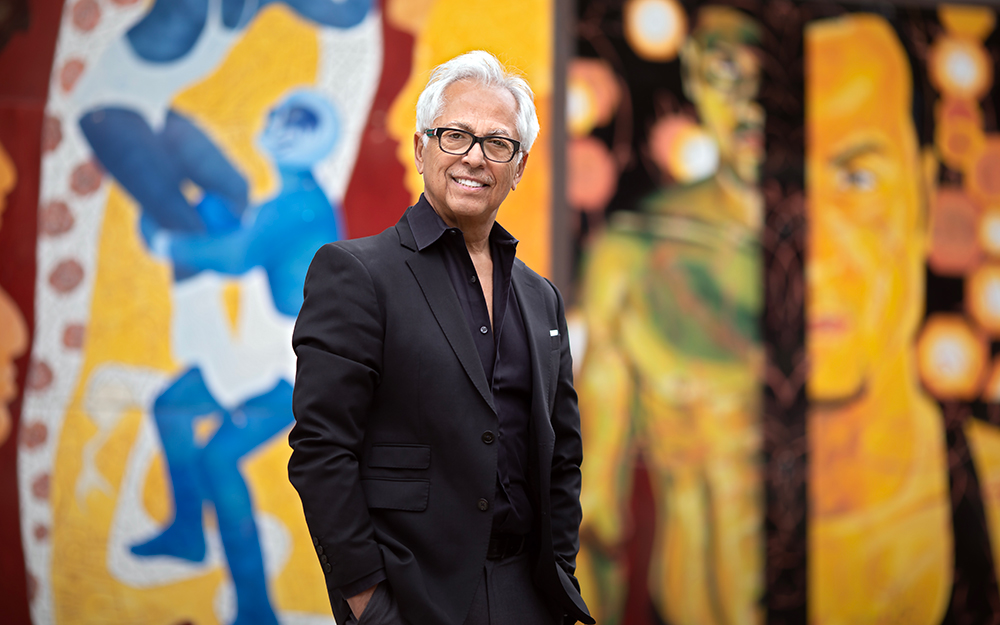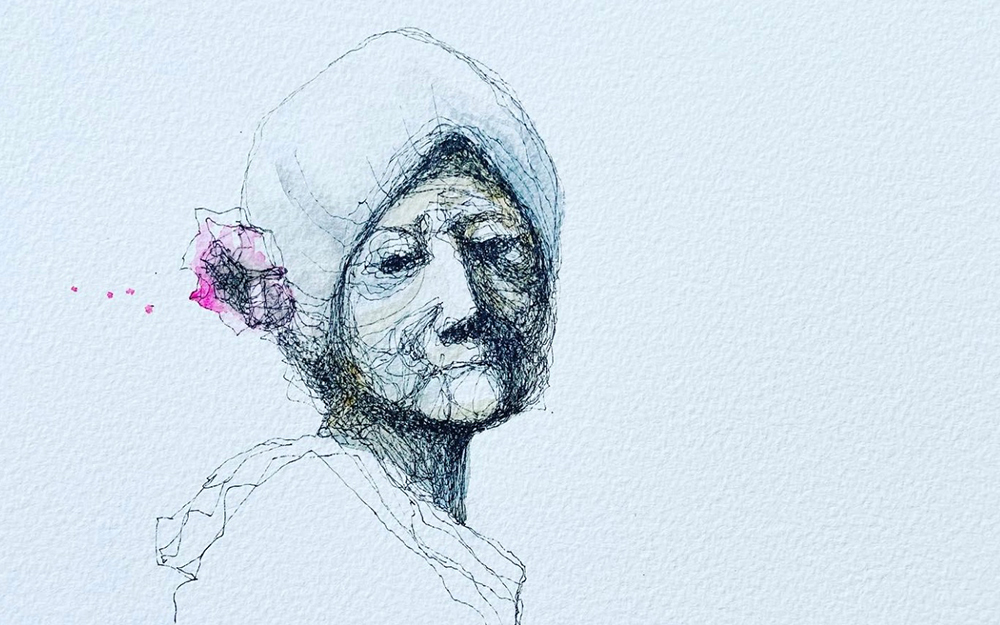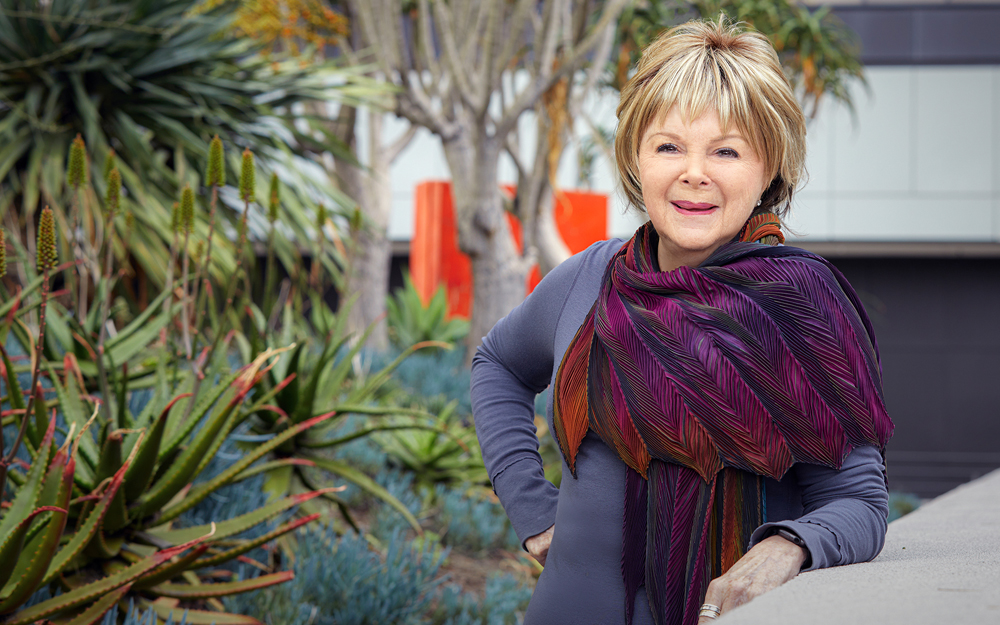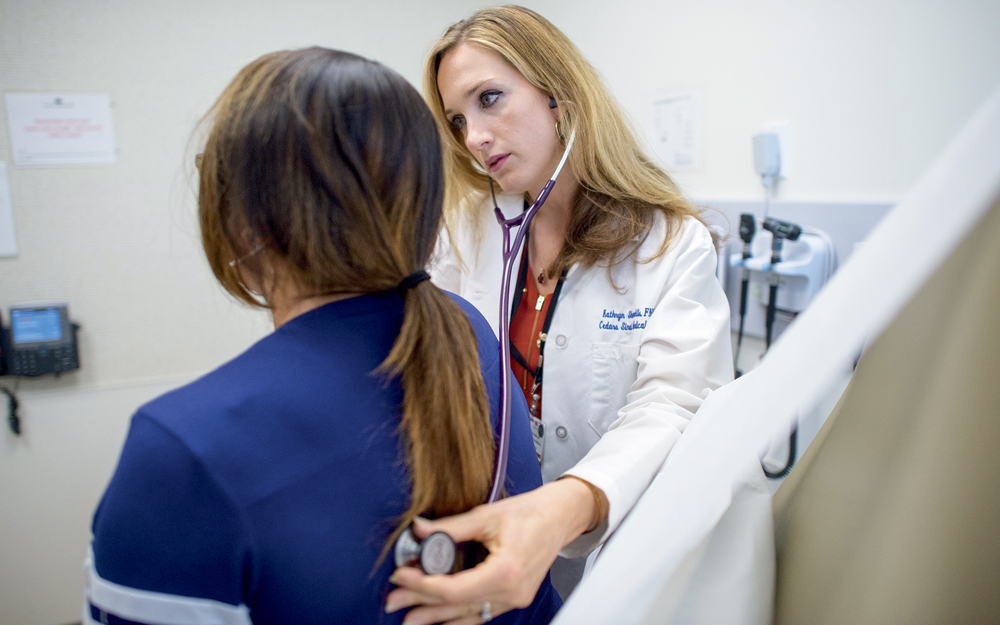A Place at the Table to Shape Cancer Research
Date
June 22, 2023

Date
June 22, 2023
Credits
Medical providers featured in this article

In Brief
{{cta-block}}
When Richard Zaldivar founded The Wall Las Memorias Project, his goal was not simply to build a wall to honor those who died of AIDS and offer a place of solace and remembrance to their loved ones. He also built, through his organization, a groundbreaking community health and wellness resource and inspired public conversation about a disease that makes people scared and uncomfortable.
From this effort, Zaldivar grew into a nationally respected LGBTQ+ and Latino speaker and leader who is known for his strategic approaches to community engagement, empowerment, HIV/AIDS, substance abuse, mental health, faith and community politics.
He brings 40 years of experience in advocacy, action and leadership to Cedars-Sinai Cancer’s Community Advisory Board, where he serves as co-chair. The board is a diverse group of community partners who work with Cedars-Sinai Cancer leadership to jointly set priorities for research, policy and outreach initiatives.
“I’m excited to serve on this advisory board because we get to do more than advise a great institution like Cedars-Sinai,” Zaldivar said. “An advisory board is also about informing other key members of the community about how to address the needs we identify. It’s a holding place for the great minds of community leaders to come together.”
Transforming Approaches to Cancer Research and Care
The board members collaborate on research initiatives, and their engagement has been transformative, said Zul Surani, associate director of Community Outreach and Engagement for Cedars-Sinai Cancer and for the Cancer Research Center for Health Equity. For example, Surani said, Zaldivar serves as a co-investigator on a tobacco research grant to develop a tobacco use-prevention curriculum for LGBTQ+ high school students. Surani points to this as an example of how the cancer center leaders have integrated community voices into research and clinical trials.
“The board also influenced Cedars-Sinai Cancer to be inclusive in our data collection, tapping into LGBTQ+ populations for research and patient care so we can better understand cancer disparities,” Surani said.
The board also works closely with the cancer center’s Transgender and Nonbinary Research Advisory Committee, which has provided feedback to aid researchers and clinicians in becoming more aware of community needs and building closer partnerships.
Zaldivar said his experience working in AIDS activism informs his work in cancer.
“There’s a tremendous stigma around both diseases. There are unknowns about where community members need more education. We need to understand more about how cancer impacts lives and what contributes to risk. We need to empower our community members to accept cancer education,” Zaldivar said.
He cited issues of health equity as barriers to LGBTQ+ people accessing appropriate healthcare. Bigotry, divisiveness, homophobia and transphobia can prevent people from attaining job security. Zaldivar noted it’s difficult to think about healthcare needs when someone is out of work or in a low-paying job.
“They’re putting themselves at risk sometimes just to put food on their tables and to take care of their parents, their partner and their children,” he said. “We cannot ignore those messages that tell people they’re no good and they’re not worth anything. That’s the great challenge to address—as much as anything in a test tube or in science—changing the thinking in our society.”
A Seat at a Diverse Table
In some of his many talks during four decades of advocacy, Zaldivar has spoken about the importance of having a seat at the table. When groups he was part of didn’t accept LGBTQ+ people, Zaldivar didn’t let that drive him away.
“When you abandon your seat at the table, you have no power,” he said. “When you really believe you deserve a place at the table, you don’t leave the table. You change it.”
LGBTQ+ people bear a disproportionate amount of the nation’s cancer burden, so it’s important to consider this community’s perspective when shaping cancer research questions and care. Not everyone who is LGBTQ+, however, comes from the same culture.
“We come from many different cultures,” Zaldivar said. “We need to understand not only cultural constraints but also the beauty of various cultures that can—and do—enhance communications.”
One important way in which the board has influenced research efforts is to encourage researchers to break down data more clearly according to ethnicities, languages and other variables.
“I’m really interested in and excited about looking at the differences in the data—whether we’re talking about Asian Americans, Pacific Islanders, the Latino community or those in the LGBTQ+ community,” he said. “It’s very important to have data to show us what the impacts are.”
Building a Wall, a Community and a Conversation
The Wall Las Memorias AIDS Monument is in Lincoln Park, Los Angeles. It’s the first publicly funded AIDS monument in the nation. Richard Zaldivar, the founder and executive director of The Wall Las Memorias Project, shared what inspired the creation of the monument.
“In the late 1980s and early 1990s, I saw a need for more education and support for people with HIV. Understanding the cultural challenges about denial, stigma and the harm to gay men, we needed to find a way to discuss these issues.
“The monument serves many purposes. One, it’s a permanent place where loved ones and family members can come and remember those who passed. It’s a focal point for a community that was so much in denial, and we built not only a standing monument, but also a Latino and LGBTQ+ community program.
“The Wall Las Memorias AIDS Monument is a symbol that dreams do come true. Building that monument, we were also building power. Empowerment is so important, whether you’re running an advisory board, getting a portfolio of your work together, or changing law and policy.
“In order to have power, you must be empowered. The Wall Las Memorias is now 29 years old. We’ve been creative and served our community, and it’s been an incredible run for nearly three decades. I thank God for that.”





